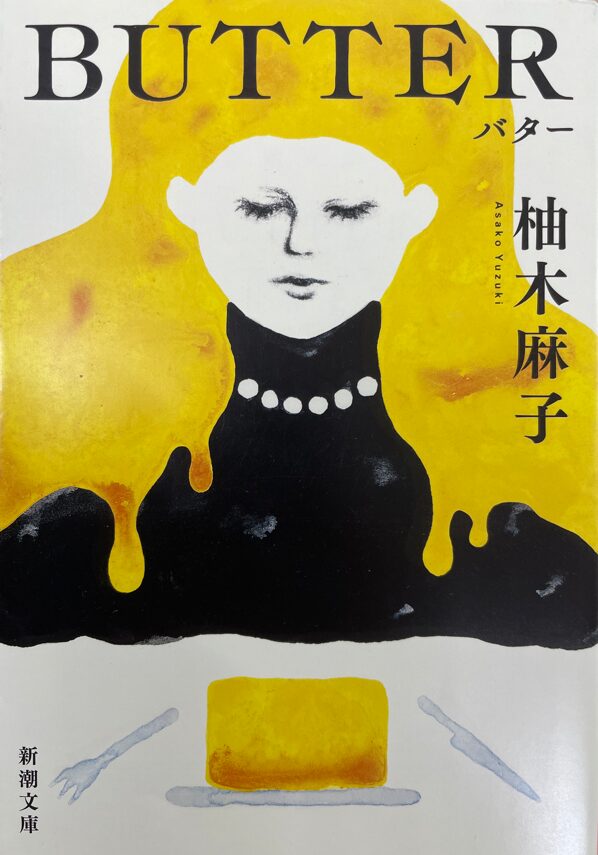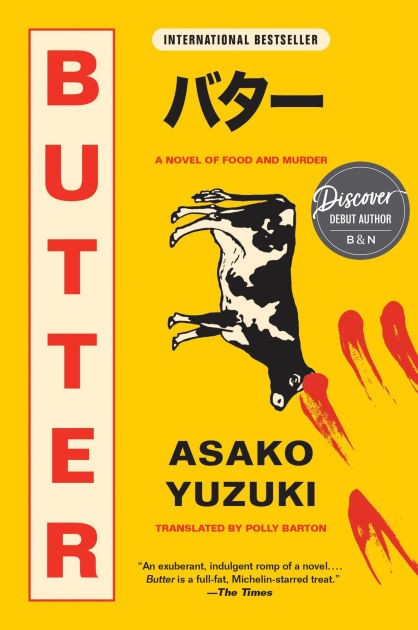Introduction
In recent years, Japanese literature has seen a resurgence of international attention, and one novel at the heart of that wave is BUTTER by Asako Yuzuki. Originally published in Japan in 2017, the novel experienced a global revival in 2024 when its English translation became a literary phenomenon in the UK. With over 280,000 copies sold and major accolades including Waterstones Book of the Year and the British Book Awards Debut Fiction, BUTTER has captured the world’s attention — and for good reason.
At first glance, the story centers around a female journalist investigating a woman accused of seducing and murdering wealthy men. But beneath this crime-inspired premise lies something deeper: a sharp critique of gender expectations, societal hypocrisy, and how women’s relationships with food and their own bodies are shaped by culture.
Yuzuki’s novel is not merely a mystery; it’s a social mirror, reflecting Japan’s contemporary struggles with feminism, self-worth, and desire. Reading BUTTER feels like peeling back the layers of a rich meal — indulgent, unsettling, and unforgettable.

About the Author
Born in 1981, Asako Yuzuki has become one of Japan’s most acclaimed contemporary writers. Before BUTTER, she gained recognition with Ito-kun A to E and The Women’s Club of Nile Perch, both shortlisted for the prestigious Naoki Prize. Known for her vivid portrayals of modern Japanese women, Yuzuki balances wit, empathy, and biting social observation.
Interestingly, she has been a five-time Naoki Prize nominee, earning her a reputation for consistency and literary depth. While some may call her the “silver medalist” of the award scene, her mastery of storytelling and psychological realism has made her one of Japan’s most respected authors.
Plot Summary
The novel follows Rika Machida, a journalist who decides to visit Manako Kajii, a woman imprisoned for allegedly defrauding and murdering several men. Unlike the femme fatales of traditional noir, Kajii is neither glamorous nor young — yet she holds a mysterious power. Through their conversations, Rika begins to question her own assumptions about beauty, femininity, and desire.
Kajii, who despises margarine and worships butter, symbolizes indulgence, honesty, and rebellion against societal restraint. Her words and actions challenge Rika — and readers — to confront the ways in which women are taught to control their appetites, both literal and emotional.
The narrative unfolds slowly but hypnotically, blending investigative journalism with psychological tension. What begins as a report on a criminal case evolves into a profound exploration of freedom, guilt, and identity.

People still saying women gotta be thin?

Yep… but just smack ’em with a butter-loaded croissant!
Themes and Literary Appeal
Food as a Mirror of the Soul
Yuzuki’s food descriptions are mesmerizing — rich, sensory, and symbolic. Butter, in particular, represents more than taste or luxury; it’s tied to desire and authenticity. In a culture that often praises restraint, the act of savoring butter becomes a quiet rebellion.
Through meals and conversations, Yuzuki depicts how appetite connects to self-expression, turning the simple act of eating into a metaphor for autonomy.
Feminism and Social Critique
BUTTER stands out as a feminist novel that avoids slogans or simplicity. Instead, it portrays women trapped between social expectations and personal truth. The story questions why women are expected to stay small — not just physically, but emotionally.
Yuzuki dissects the “fear of fatness”, beauty standards, and the internalized guilt surrounding female desire. The result is a novel that doesn’t preach but provokes — urging readers to reconsider how society defines “good” women.
Humor, Irony, and Emotional Depth
Despite tackling dark and complex issues, BUTTER is surprisingly witty. Yuzuki’s dialogue sparkles with irony, and her characters often express deep truths with humor. This balance prevents the story from feeling heavy-handed.
Even at its most unsettling moments, the book reminds us that laughter — like food — is part of survival.
Why It Resonates Globally
The international success of BUTTER speaks volumes about how universal its themes are. Whether in Japan, the UK, or the U.S., readers connect with the story’s honest portrayal of female relationships, ambition, and shame.
Moreover, the English translation captures the lush rhythm of Yuzuki’s prose without losing its cultural nuance. Western audiences have compared BUTTER to novels by Margaret Atwood and Ottessa Moshfegh — works that explore messy, intelligent women who defy moral simplicity.
The fact that BUTTER won multiple awards outside Japan also marks a turning point: Japanese contemporary literature is no longer seen as niche, but essential to global literary conversations.
Who Should Read “BUTTER”
This novel will appeal to:
- Readers who love stories that mix psychological tension with social commentary.
- Fans of feminist literature exploring body, identity, and self-control.
- Anyone drawn to works where food and desire intertwine to reveal deeper truths.
- Those who enjoyed Muriel Barbery’s The Elegance of the Hedgehog or Sayaka Murata’s Convenience Store Woman.
If you’re ready for a book that is rich, unsettling, and thought-provoking — much like the butter it glorifies — this one’s for you.
Conclusion
Asako Yuzuki’s BUTTER is a novel that seduces the mind as much as it nourishes the soul. Through its blend of social critique, vivid food imagery, and complex female characters, it challenges us to think about what it means to live authentically in a world full of expectations.
At its core, BUTTER isn’t just a story about crime or cooking. It’s about the hunger to be seen, understood, and free — a hunger shared by women across the globe.
In every sense of the word, BUTTER spreads far beyond Japan — igniting global conversations about feminism, identity, and what it means to taste life without fear.
This blog introduces Japanese novels. If you have any questions or want to learn more about Japanese culture or literature, feel free to contact us!





コメント